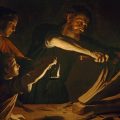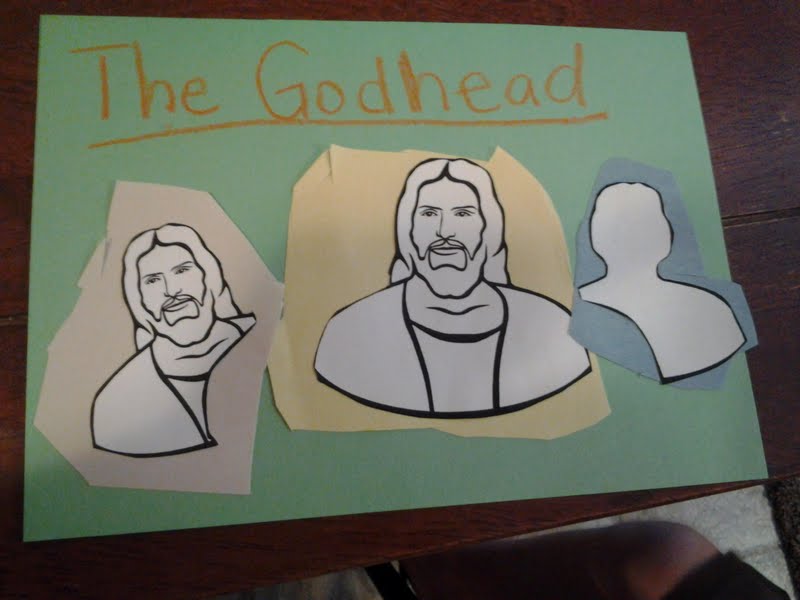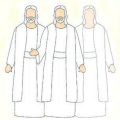Question
Dear Gramps,
I’ve heard and read that God is the same “yesterday, today, and forever.” I have also heard that He used to be just like us on another Earth and then He became a God. These statements seem to contradict. Is the latter incorrect or am I missing something?
Peter
Answer
Dear Peter,
The scriptures of the restoration reaffirm the traditional Christian doctrine that “God is the same yesterday, today, and forever, and in him there is no variableness neither shadow of changing” (Mormon 9:9, see also D&C 20:12). What’s more, God must be “an unchangeable Being [… and] changeth not; if so he would cease to be God” (Mormon 9:19, see also D&C 20:17).
Our scriptures also teach the traditional Christian doctrine that “God, the greatest of all” (D&C 19:18) “suffered temptations but gave no heed unto them. He was crucified, died, and rose again…; And ascended into heaven, … to reign with almighty power.” (D&C 20:21-24). That is, God came to this earth, was with us (see Matthew 1:23), died like a common thief, was entombed like any corpse, and rose again in glory. This is the story of the Gospels, the story of “the Great Jehovah of the Old Testament, the Messiah of the New” (The Living Christ).
As you note, there is a seeming contradiction here. Jehovah was spirit, then embodied in mortal flesh, then spirit once again, and finally immortal spirit and body. He underwent all these changes, and yet the various prophetic witnesses of Him assure us of His unchanging nature. To gain wisdom in this matter, we turn again to the scriptures referenced earlier. For Moroni (in Mormon 9), God’s unchanging nature is not about embodiment or mortality but about His consistent administration of the gifts of the spirit.
“And again I speak unto you who deny the revelations of God, and say that they are done away, that there are no revelations, nor prophecies, nor gifts, nor healing, nor speaking with tongues, and the interpretation of tongues; Behold I say unto you, he that denieth these things knoweth not the gospel of Christ; yea, he has not read the scriptures; if so, he does not understand them. For do we not read that God is the same yesterday, today, and forever, and in him there is no variableness neither shadow of changing?” (9:7-9).
This administration is so consistent, that if it is absent it must be a fault in the disciples and not of God!
“And if there were miracles wrought then, why has God ceased to be a God of miracles and yet be an unchangeable Being? And behold, I say unto you he changeth not; if so he would cease to be God; and he ceaseth not to be God, and is a God of miracles. And the reason why he ceaseth to do miracles among the children of men is because that they dwindle in unbelief, and depart from the right way, and know not the God in whom they should trust.” (9:19-20).
Similarly, the testimony in the Doctrine and Covenants of the unchanging God teaches that He uses the same pattern of prophets across time and peoples. It is not a revelatory witness that Christ was never born. Specifically, the translated Book of Mormon proves to the world that the holy scriptures are true, and that God does inspire men and call them to his holy work in this age and generation, as well as in generations of old; Thereby showing that he is the same God yesterday, today, and forever.” (D&C 20:11-12). And He is the same because He uses the same plan of salvation across generations.
“By these things we know that there is a God in heaven, who is infinite and eternal, from everlasting to everlasting the same unchangeable God;
… that he created man… And gave unto them commandments that they should love and serve him, the only living and true God, and that he should be the only being whom they should worship. … [And] as many as would believe and be baptized in [Christ’s] holy name, and endure in faith to the end, should be saved—
Not only those who believed after he came in the meridian of time, in the flesh, but all those from the beginning, even as many as were before he came, who believed in the words of the holy prophets, who spake as they were inspired by the gift of the Holy Ghost, who truly testified of him in all things, should have eternal life, As well as those who should come after, who should believe in the gifts and callings of God by the Holy Ghost.” (D&C 20:17-27).
For Latter-day Saints, the stakes are raised because of Lorenzo Snow’s couplet:
As man now is, God once was:
As God now is, man may be.
Joseph Smith, in one of his final sermons, also taught something similar.
“I want you to pay particular attention to what I am saying. Jesus said that the Father wrought precisely in the same way as His Father had done before Him. As the Father had done before? He laid down His life, and took it up the same as His Father had done before. He did as He was sent, to lay down His life and take it up again; and then was committed unto Him the keys. I know it is good reasoning.” (Teachings of the Prophet Joseph Smith, pg 373)
You can see (even reading the entirety of the sermon, and even reading the quotes in the Lorenzo Snow manual above) that this teaching takes a back seat to the doctrine of deification. What it means, beyond the death and resurrection of God the Father, has not been revealed. But in relation to your question, we can understand that there is no contradiction in stating that God the Father is embodied and unchanging because we already see that Christ is embodied and unchanging. I am reminded of an exchange between Jesus and Philip following the Last Supper. “Philip saith unto him: Lord, shew us the Father, and it sufficeth us. Jesus saith unto him, Have I been so long time with you, and yet hast thou not known me, Philip? he that hath seen me hath seen the Father; and how sayest thou then, Shew us the Father?” (John 14:8-9).
Gramps







